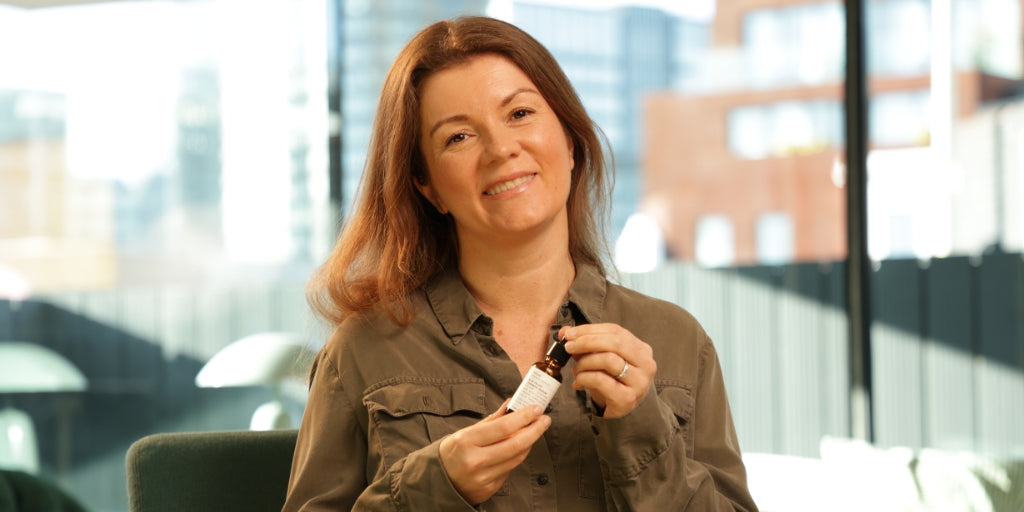Practicing mindfulness can sound like an overwhelming idea, but we promise it doesn't have to involve yoga headstands or silent retreats! The NHS notes that mindfulness could have a significant impact on our mental wellbeing, and it's much easier to start than you'd think.
Essentially, mindfulness is just a way of taking our bodies off autopilot for part of the day. We often find ourselves slipping into habits and not noticing things like the beauty of the world around us, or how our body feels in that moment, which can let a rush of thoughts overwhelm us. It can be helpful to set aside a particular time in your day to deliberately practice mindfulness, but it can also become a way of thinking about certain facets of your life.

For example, one of the easiest ways to practice mindfulness is to simply listen to what your body wants in any given moment. It might be that you've fallen into a routine of having something sweet every day with lunch, but if you stop and think about whether you will actually enjoy eating it, you might find that your body isn't that interested. Think Marie Kondo but for food - does it spark joy (or at least will it make your body feel good)? If so, absolutely go ahead and eat it - there's no point feeling guilty! But if it doesn't, maybe just save it for a time when it will. Additionally, pay attention to the feeling of fullness while you’re eating: eating slowly and chewing thoroughly will both help with this, but it still requires dispelling the idea that you should finish everything on your plate. On the contrary, you should only eat until you feel satisfied - it’s hardly impolite to look after your body! This means you won’t end up feeling stuffed and a little sick, which is definitely worth a little mindfulness!

Equally, if you normally go to the gym on Wednesdays, but this Wednesday you're feeling run down and a little sick, check in with your body. Will exercise release a rush of endorphins and make you feel better? Or do you need to skip the gym and have an early night instead? It can be so easy to fall into a pattern because we're told we should do particular things, but sometimes a break from the routine is necessary. Of course, don't use this as an excuse to skip exercise every week! In fact, a break from your routine could in this case simply mean changing up the type of exercise that you do - try swapping a run for a yoga session, or spinning for a dance class. You'd be surprised how much a shake up of routine can shake you out of a slump!
The change of routine could even be as basic as switching from your regular seat in a meeting, choosing a different lunch destination, or picking a new route back from work. The aim here is to jolt your brain out of its habits, because while you're on autopilot it can be easy to let thoughts overwhelm you, causing stress and even contributing to anxiety or depression. Practicing mindfulness is also a way of recognising what is affecting your thoughts and mood: when an irritable thought pops into your head, take a moment to think about what might have caused it. Lack of sleep or food, or too much sugar or caffeine can all have negative effects on our emotions. Recognising what could be causing or exacerbating your negative thoughts is a good way of realising how you actually feel about a situation.
If none of those options sound like they'd work for you, how about setting aside some time to focus? This can be a lunchtime walk every day where you pay attention to the feeling of the sun on your face, or the smell of the flowers, or the glittering frost on the grass. That's a bit too romantic for you? How about a ten-minute mindfulness meditation every morning. Focus on your breathing, and try to let thoughts leave your head as easily as they come, without getting tangled up in them. Think about how your body feels, and try to stop worrying about past or future events - this gets easier with practice, we promise!

It’s so easy to assume that mindfulness is the domain of yoga instructors, or people who have spent several months in a calming retreat. Really, mindfulness is simple to pick up and start practicing, and noticeably improves both your mood and mental health. There’s been a lot of research into how good green spaces are for our mental wellbeing - and recently about blue spaces as well. Concentrating on the beauty of nature, especially when your routine is mostly city-based, can have a huge impact on your mindset. As the saying goes - stop and smell the roses!





